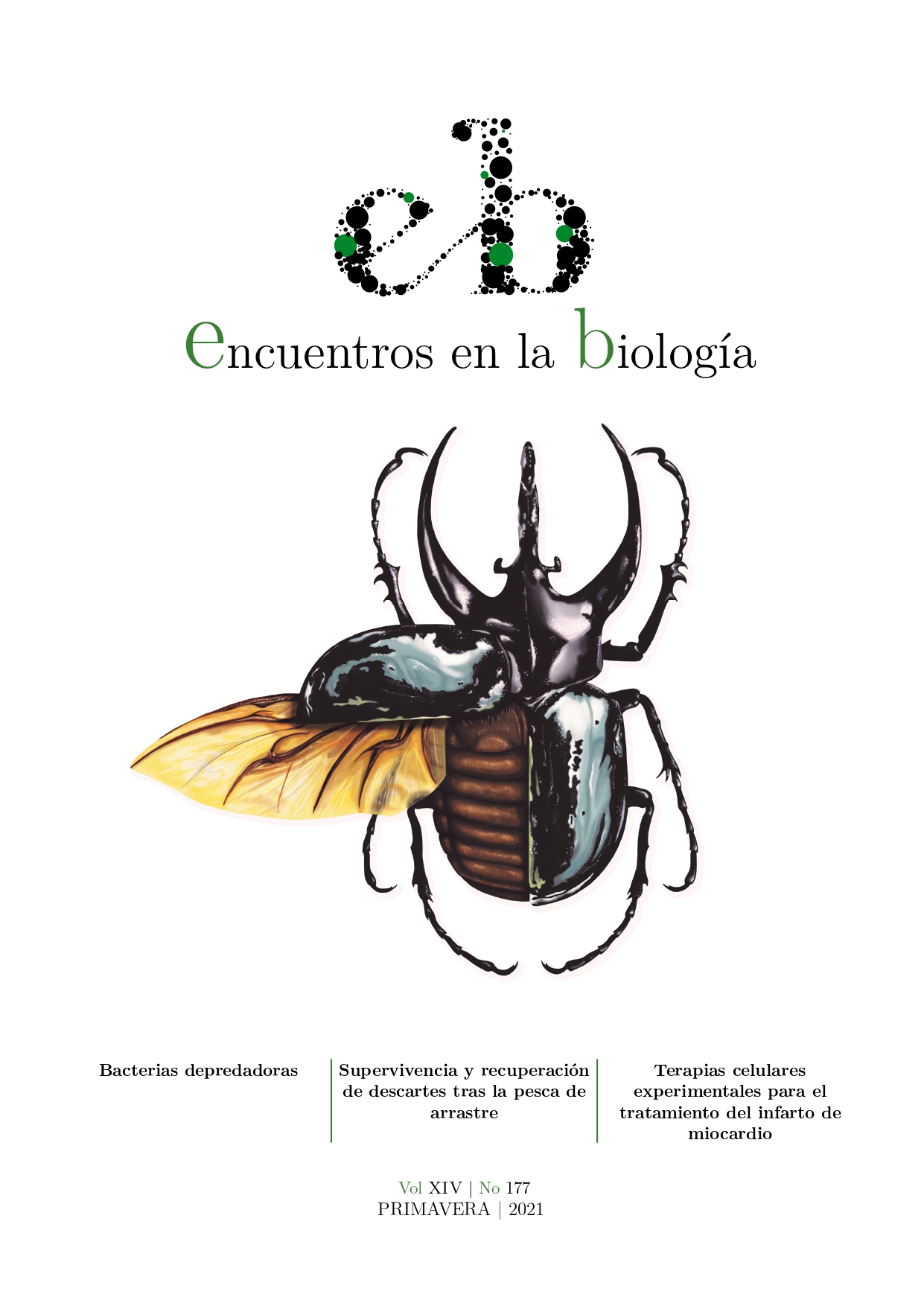When our arteries get old
DOI:
https://doi.org/10.24310/enbio.v14i177.16700Abstract
The aging of our arteries represents an important cardiovascular risk factor, associated with the lack of functionality of blood vessels and a reduced response to different stimuli, such as the activation of angiogenesis. In fact, the age-related lack of angiogenic response conditions the maintenance of the physiological vascular network and the repair of damaged tissues after episodes of ischemia. The maintainance of a good cardiovascular health means keeping our arteries young, and to do this, the prevention of oxidative damage is fundamental, with food bioactive compounds playing a very important role.
Downloads
Metrics
References
Ungvari, Z., et al. 2018. Endothelial dysfunction and angiogenesis impairment in the aging vasculature. Nature Reviews Cardiology, 15(9), pp. 555-565.
Ross, M.D. 2018. Endothelial regenerative capacity and aging: influence of diet, exercise and obesity. Current Cardiology Reviews, 14, pp. 233-244.
Heiss, C., et al. 2018. Interventions to slow cardiovascular aging: dietary restriction, drugs and novel molecules. Experimental Gerontology, 109, pp. 108-118
Lähteenvuo, J., et al. 2012. The role of angiogenesis in cardiovascular aging. Cardiovascular Research, 110(9), pp. 1252-1264
Downloads
Published
How to Cite
Issue
Section
License
Esta obra está bajo licencia internacional Creative Commons Reconocimiento-NoComercial-CompartirIgual 4.0.
Esta revista provee acceso libre inmediato a su contenido bajo el principio de hacer disponible gratuitamente la investigación al público. Todos los contenidos publicados en Encuentros en la Bilogía están sujetos a la licencia Creative Commons Reconocimento-NoComercia-Compartirigual 4.0 cuyo texto completo puede consultar en <http://creativecommons.org/licenses/by-nc-sa/4.0>
Se pueden copiar, usar, difundir, transmitir y exponer públicamente, siempre que:
Se cite la autoría y la fuente original de su publicación (revista, editorial y URL de la obra).
No se usen para fines comerciales.
Se mencione la existencia y especificaciones de esta licencia de uso
Los derechos de autor son de dos clases: morales y patrimoniales. Los derechos morales son prerrogativas perpetuas, irrenunciables, intransferibles, inalienables, inembargables e imprescriptibles. De acuerdo con la legislación de derechos de autor, Encuentros en la Biología reconoce y respeta el derecho moral de los autores/as, así como la titularidad del derecho patrimonial, el cual será cedido a la Universidad de Málaga para su difusión en acceso abierto. Los derechos patrimoniales, se refieren a los beneficios que se obtienen por el uso o divulgación de las obras. Encuentros en la Biología se publica en open access y queda autorizada en exclusiva para realizar o autorizar por cualquier medio el uso, distribución, divulgación, reproducción, adaptación, traducción o transformación de la obra.
Es responsabilidad de los autores/as obtener los permisos necesarios de las imágenes que están sujetas a derechos de autor.
Los autores/as cuyas contribuciones sean aceptadas para su publicación en esta revista conservarán el derecho no exclusivo de utilizar sus contribuciones con fines académicos, de investigación y educativos, incluyendo el auto-archivo o depósito en repositorios de acceso abierto de cualquier tipo.
La edición electrónica de esta revista esta editada por la Editorial de la Universidad de Málaga (UmaEditorial), siendo necesario citar la procedencia en cualquier reproducción parcial o total.





